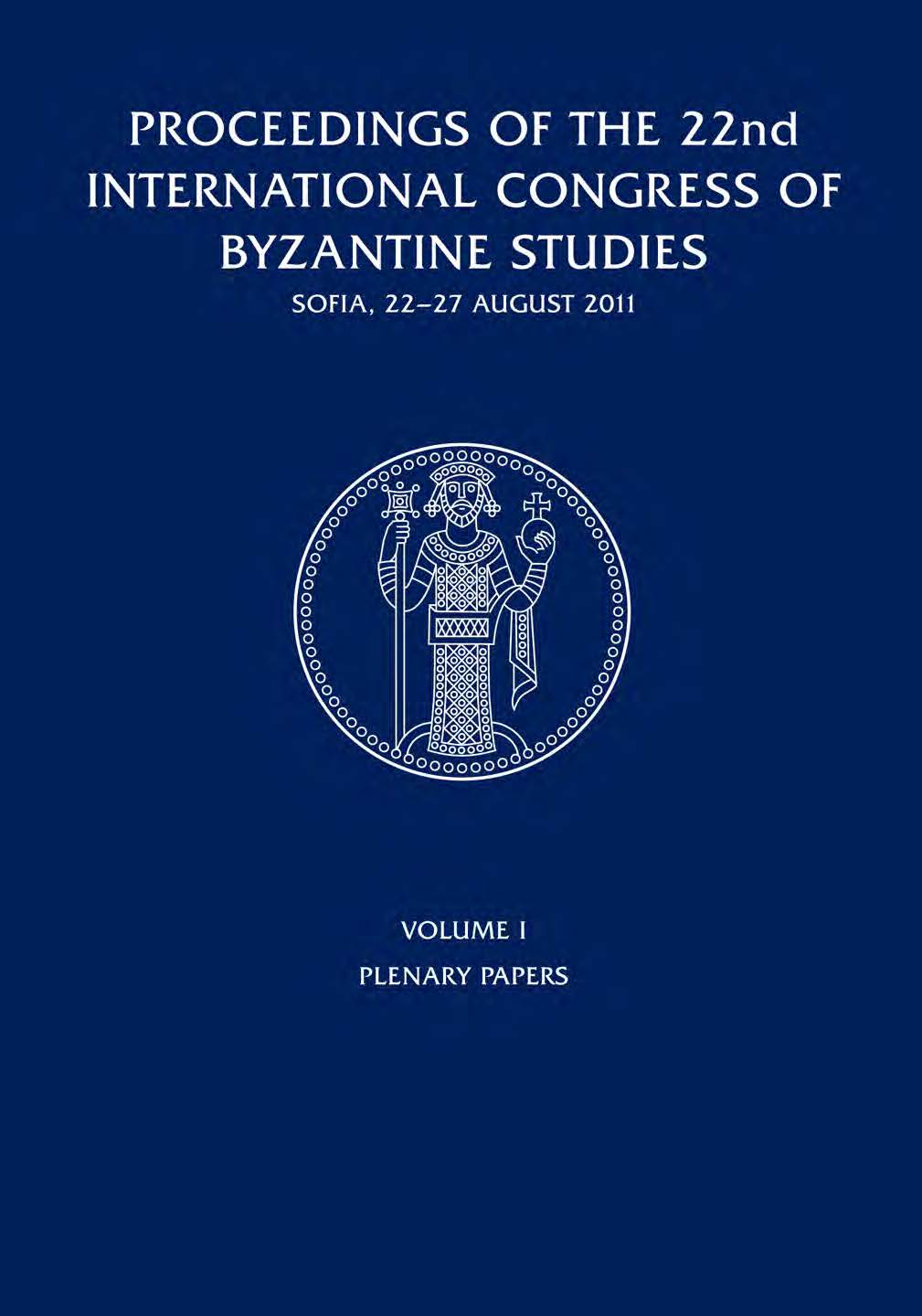
We kindly inform you that, as long as the subject affiliation of our 300.000+ articles is in progress, you might get unsufficient or no results on your third level or second level search. In this case, please broaden your search criteria.







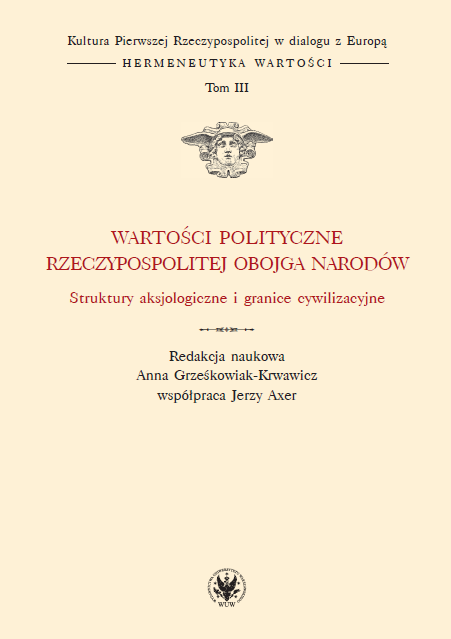
The authors present the political values functioning in the Polish-Lithuanian Commonwealth - primarily, but not only, in the community of politically active noble citizens. They try to recreate them on the basis of a thorough analysis of various sources - treaties and political journalism, public speeches at the Seym and regional councils, but also unofficial statements, private exchange of views between participants in political life. The subject of the analysis is, inter alia, the ideal of the state as a community of citizens present in the political discourse, as well as the contemporary vision of a man-citizen, a member of the political community, and his obligations towards it. The authors also present and interpret the then understanding of the concepts of homeland or patriotism, and devote a lot of attention to the fundamental values of the political life of the Polish-Lithuanian Commonwealth, such as law and freedom. They show the analyzed issues not only in a broader European context, but also in different epochs, which allows to follow the evolution in the understanding and evaluation of political concepts and ideals. The 12-volume series of monographs Kultura Pierwszej Rzeczpospolitej w dialogu z Europą. Hermeneutyka wartości” presents the cultural heritage of the 15th and 18th centuries as an integral but original part of European culture. The research goal is to identify the ways and forms of the mutual transmission of aesthetic, political and religious values and to present in a broad, multilateral comparative context the axiological structure of Polish culture of the past epochs. Cultural texts are examined from an internal perspective as records of acts aimed at understanding values, and from an external perspective as statements that join European literary-aesthetic, political and religious discussions. In an intense dialogue, the culture of the Republic of Poland shows not only a receptivity to new ideas, but also creativity and dynamics of action in Europe.
More...
The authors present the political values functioning in the Polish-Lithuanian Commonwealth – primarily, but not only, in the community of politically active noble citizens. They try to recreate them on the basis of a thorough analysis of various sources – treaties and political journalism, public speeches at the Sejm and regional councils, but also unofficial statements, private exchange of views between participants in political life. The subject of the analysis is, inter alia, the ideal of the state as a community of citizens present in the political discourse, as well as the contemporary vision of a man-citizen, a member of the political community, and his obligations towards it. The authors also present and interpret the then understanding of the concepts of homeland or patriotism, and devote a lot of attention to the fundamental values of the political life of the Polish-Lithuanian Commonwealth, such as law and freedom. They show the analyzed issues not only in a broader European context, but also in different epochs, which allows to follow the evolution in the understanding and evaluation of political concepts and ideals. The 12-volume series of monographs "Kultura Pierwszej Rzeczpospolitej w dialogu z Europą. Hermeneutyka wartości” presents the cultural heritage of the 15th and 18th centuries as an integral but original part of European culture. The research goal is to identify the ways and forms of the mutual transmission of aesthetic, political and religious values and to present in a broad, multilateral comparative context the axiological structure of Polish culture of the past epochs. Cultural texts are examined from an internal perspective as records of acts aimed at understanding values, and from an external perspective as statements that join European literary-aesthetic, political and religious discussions. In an intense dialogue, the culture of the Republic of Poland shows not only a receptivity to new ideas, but also creativity and dynamics of action in Europe.
More...
The authors present the political values functioning in the Polish-Lithuanian Commonwealth – primarily, but not only, in the community of politically active noble citizens. They try to recreate them on the basis of a thorough analysis of various sources – treaties and political journalism, public speeches at the Sejm and regional councils, but also unofficial statements, private exchange of views between participants in political life. The subject of the analysis is, inter alia, the ideal of the state as a community of citizens present in the political discourse, as well as the contemporary vision of a man-citizen, a member of the political community, and his obligations towards it. The authors also present and interpret the then understanding of the concepts of homeland or patriotism, and devote a lot of attention to the fundamental values of the political life of the Polish-Lithuanian Commonwealth, such as law and freedom. They show the analyzed issues not only in a broader European context, but also in different epochs, which allows to follow the evolution in the understanding and evaluation of political concepts and ideals. The 12-volume series of monographs „Kultura Pierwszej Rzeczpospolitej w dialogu z Europą. Hermeneutyka wartości” presents the cultural heritage of the 15th and 18th centuries as an integral but original part of European culture. The research goal is to identify the ways and forms of the mutual transmission of aesthetic, political and religious values and to present in a broad, multilateral comparative context the axiological structure of Polish culture of the past epochs. Cultural texts are examined from an internal perspective as records of acts aimed at understanding values, and from an external perspective as statements that join European literary-aesthetic, political and religious discussions. In an intense dialogue, the culture of the Republic of Poland shows not only a receptivity to new ideas, but also creativity and dynamics of action in Europe.
More...
The authors present the political values functioning in the Polish-Lithuanian Commonwealth – primarily, but not only, in the community of politically active noble citizens. They try to recreate them on the basis of a thorough analysis of various sources – treaties and political journalism, public speeches at the Sejm and regional councils, but also unofficial statements, private exchange of views between participants in political life. The subject of the analysis is, inter alia, the ideal of the state as a community of citizens present in the political discourse, as well as the contemporary vision of a man-citizen, a member of the political community, and his obligations towards it. The authors also present and interpret the then understanding of the concepts of homeland or patriotism, and devote a lot of attention to the fundamental values of the political life of the Polish-Lithuanian Commonwealth, such as law and freedom. They show the analyzed issues not only in a broader European context, but also in different epochs, which allows to follow the evolution in the understanding and evaluation of political concepts and ideals. The 12-volume series of monographs „Kultura Pierwszej Rzeczpospolitej w dialogu z Europą. Hermeneutyka wartości” presents the cultural heritage of the 15th and 18th centuries as an integral but original part of European culture. The research goal is to identify the ways and forms of the mutual transmission of aesthetic, political and religious values and to present in a broad, multilateral comparative context the axiological structure of Polish culture of the past epochs. Cultural texts are examined from an internal perspective as records of acts aimed at understanding values, and from an external perspective as statements that join European literary-aesthetic, political and religious discussions. In an intense dialogue, the culture of the Republic of Poland shows not only a receptivity to new ideas, but also creativity and dynamics of action in Europe.
More...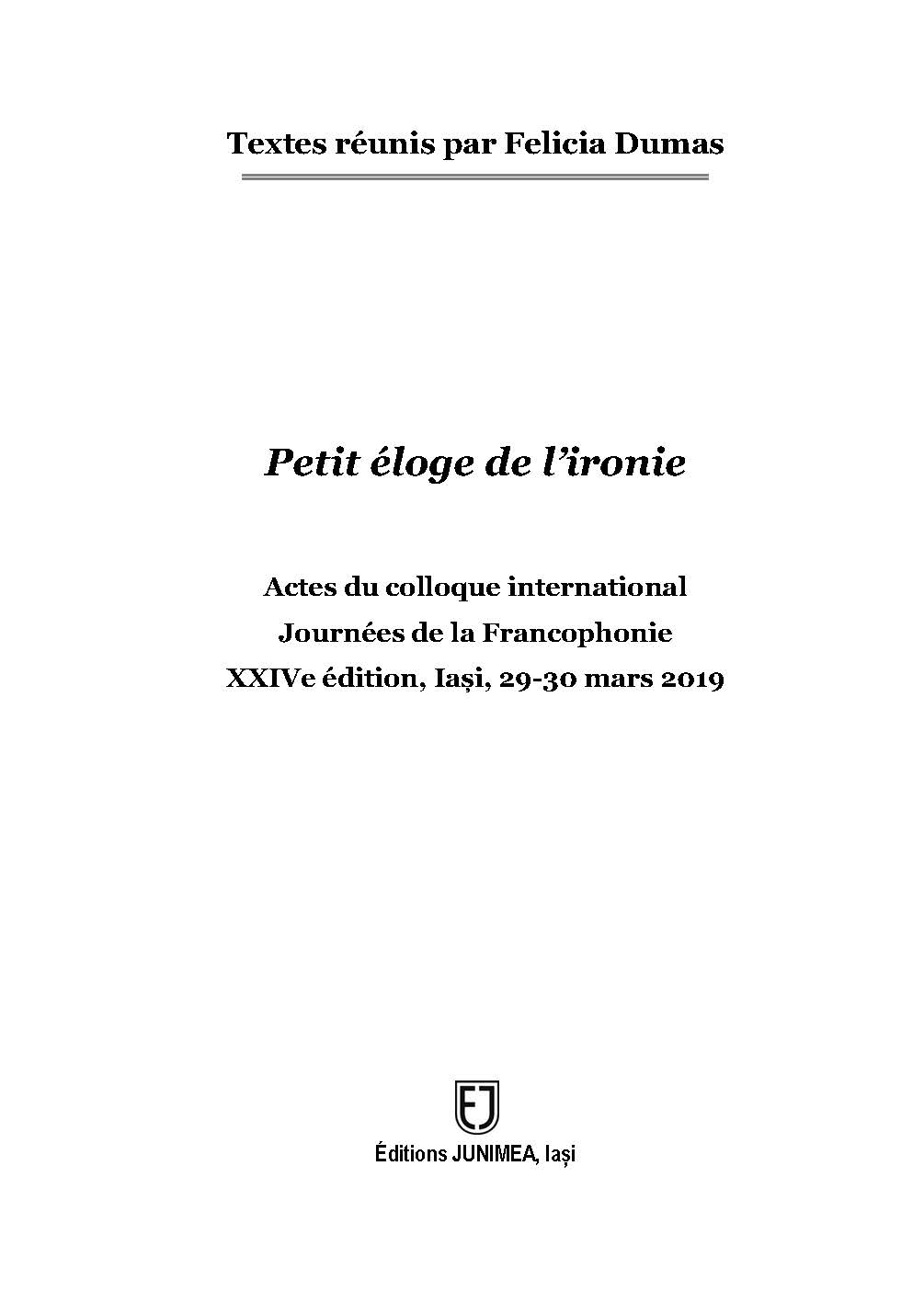
When a sacrificial hero ascends to Heaven in the company of archangels, and yet finds the resources to laugh away the death-sentence launched by his arch-enemy, it is an epic kind of irony, involving divergent instances of narrative encoding. The Song of Roland, in the celebrated version preserved by the Oxford manuscript, proposes a polemic code of wittiness transcending the contemporary paradigms of rhetorical success. Throughout the story, a pacifist kind of relativism irradiates the lances of courtesy and banter, while the spirit of “legerie” (lightness) instills in the protagonists an overwhelming sense of the vanity of human glory and divine imperatives.
More...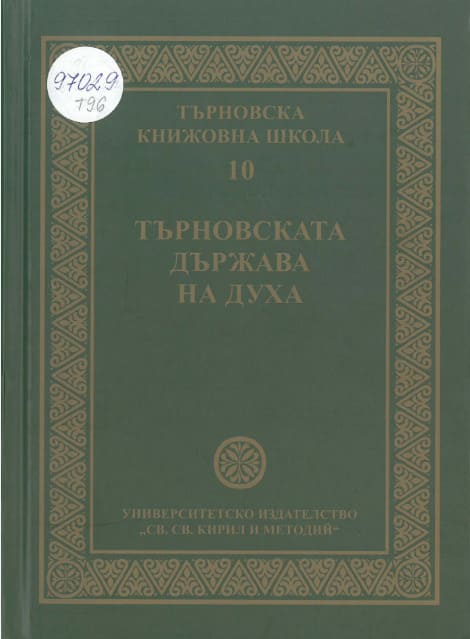
The article discusses some scholia by St. Cyril of Alexandria from the Greek Catena on the Book of Prophet Isaiah in comparison with the Preslav translation according to several representatives of the two Slavonic manuscript traditions – the Middle Bulgarian (F.I. 461 from the Russian National Library in Saint Petersburg) and the Russian ones (Mss. Chudovski 182, 183 and 184 from the State Historical Museum in Moskow and Ms. 89 and Ms. 90 from the Collection of the Troitse-Sergieva Laura). The parallels between the Greek and Slavonic manuscript traditions make it possible to draw the following conclusions. The complex Slavonic tradition should be explored because the Middle Bulgarian manuscript tradition is incomplete and represents only a part of the Preslav translation, and the conclusions made on its basis are incomplete. The parallel study of the Slavonic translation with samples from the Greek Catеnae shows that it is insufficient to work only with the full text of the commentary in Patrologia Graeca, as some translation decisions in Slavonic can be explained only by the Greek source used. The study of the scholia by St. Cyril of Alexandria in Slavonic translation, as well as the study of the scholia by Theodulus and John Chrysostom, point to the possibility that the Slavonic translation represents unknown or today unpreserved abbreviated version of the Greek catena.
More...

The subject of this paper is version of the service to St. Nicholas of Myra in two Bulgarian menaions of the 14th century. One is taken from the collection of the National Library of Russia and another one so called “Dragan’s menaion” is taken from the collection of the Zograf monastery. The service in the both menaions demonstrates the brevity of the composition. This composition is different from the version of the Russian menaions of the 12th – 14th centuries. The composition of services for both Bulgarian menaions is almost identical but there is an important difference – there are different canons with the same kontakion and ikos. Both canons are not known by other traditions. The canon of the Dragan’s menaion is particularly interesting. The origin of this canon undoubtedly goes back to an old one, since it keeps the second second Ode. The images and lexical material also show its antiquity. The paper is devoted to the analysis of this services and in particularly of the canon of Dragan’s menaion.
More...
Object of the present research are hapax legomena in the Middle Bulgarian translation of John Chrysostom’s work Of the Seraphims. The analyzed lexemes are the smallest lexical segment in this manuscript and they are a specific parameter/indication of the Dionisii Divni’s idiosyncrasy. Hapax legomena have been compared with more than 60 Old and Middle Bulgarian texts originated in the XII – XVIII century. It examines problems associated with semantics, word formative and morphemic structure and diffusion of these lexemes in the Modern Bulgarian language.
More...
The article considers the problem about the continual growing of the functional power of the Bulgarian literary language between the IX and XIV century, owing to the purposeful language policy. The result is the conversion of the Bulgarian language in the third and last classical language in Europe. The Innovative in the process of work is the characteristics of classical languages from the sociolinguistic type of view Special accent is placed on the methods of research of Old Bulgarian literary language and the process of forming the rest of the literary languages in the territory of the modern Slavia Orthodoxa.
More...
This article attempts to shed light on the all too vague history of Rila Monastery until the end of the 14th century – both concerning its founding and based on new interpretations of some well-known sources, mainly hagiographical. Particular attention is paid to newly emerged hypotheses, which claims without argumentation that the Rila Monastery was deserted very early and was subsequently rebuilt anew during the 14th century.
More...
The subject of investigation is the textological relationship between Eythymios’ “The Panegyric for St. Constantine and Helena” and a number of Greek and Slavonic medieval sources: Eusebius of Caesarea’s “Life of Constantine”, Athanasius of Alexandria’s “Orationes contra Arianos”, the Guidi-Vita of Constantine (BHG 364), the Gedeon-Vita of Constantine (BHG 363), “De inventione sanctae crucis” by Alexander the Monk, the Homily of Gregorius Presbyter “Κυριακή τῶν Αγίων πατέρων τῆς Α’ Οἰκουμενικῆς Συνόδου” and the anonymous “De donatione Constantini”. The Greek biographers used the Church chronicles of Eusebius, Sokrates, Rufinus of Aquileia and Theophanes. Тhе Eytimius’ Panegyric indicates the free use of the Greek and Slavonic sources: some events are probably transferred from an earlier Slavonic pro-Vita based on extracts from the Greek Vita BHG 363/364 and “De donatione Constantini” acc. the manuscript 793 in the library of Troice-Sergeevsk Lavra. The description of the miracles of the martyrs Chrisantios and Musonios, the dispute between Alexander of Alexandria and one unnamed philosopher as well as the narrative on Elena in Jerusalem has been found in the Greek Homily of Gregorius Presbyter. The author identifies the philosopher mentioned by Eythymius as Asterius the Sophist acc. to Athanasius’s “Orationes”. Acc. to the linguistic details Eythymius became acquainted with one kompiled pro-Vita of Constantine. The author suggests, that one pro-Vita of Preslav origin was edited at the same time as Konstantin of Preslav’s translation of Athanasius of Alexandria’s “Orationes” before the transfer of “Orationes” to Novgorod.
More...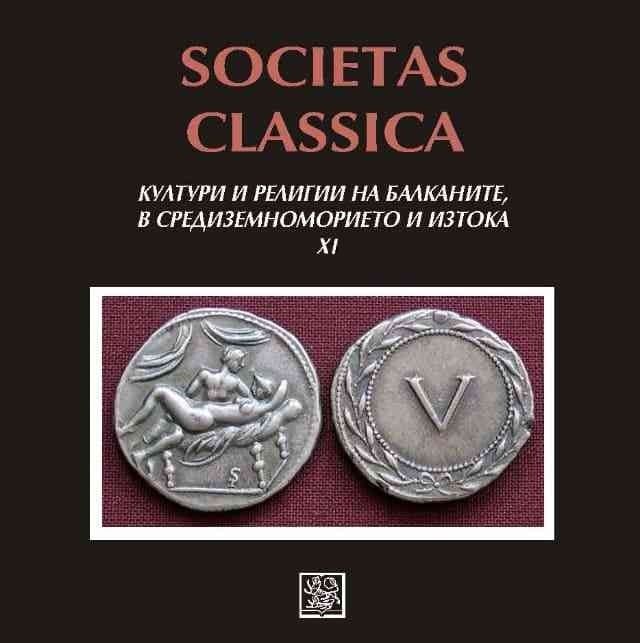
Latin Christian literature of the first thousand years is a wide area for scientific studies. In this article a periodization of Latin Christian literature (2nd – 11th cc.) is made. A search has been carried out for the authors, firstly, who are an object of Bulgarian scientific articles and monographs; in the second place, topics of these studies have been found. A conclusion about the contemporary state of the studies on Latin Christian literature in Bulgaria has been also taken. Finally, the perspectives for the future Bulgarian studies on Latin Christian literature in Bulgaria have been drawn.
More...